On August 23, the year-long 13th “China Software Cup” University Software Design Competitionconcluded in Nanjing. The competition attracted over 5,800 teams from 800 universities across 31 provinces. After regional and preliminary rounds, 355 teams advanced to the finals, with 200 teams participating in the on-site finals in Nanjing. The competition ultimately awarded 18 first prizes (including one special award), 92 second prizes, and 245 third prizes, along with 18 Best Advisor Awards and 70 Best School Organization Awards.
SSE students achieved outstanding results, winning one first prize and four third prizes in the national finals. Let’s take a closer look at these exceptional teams:
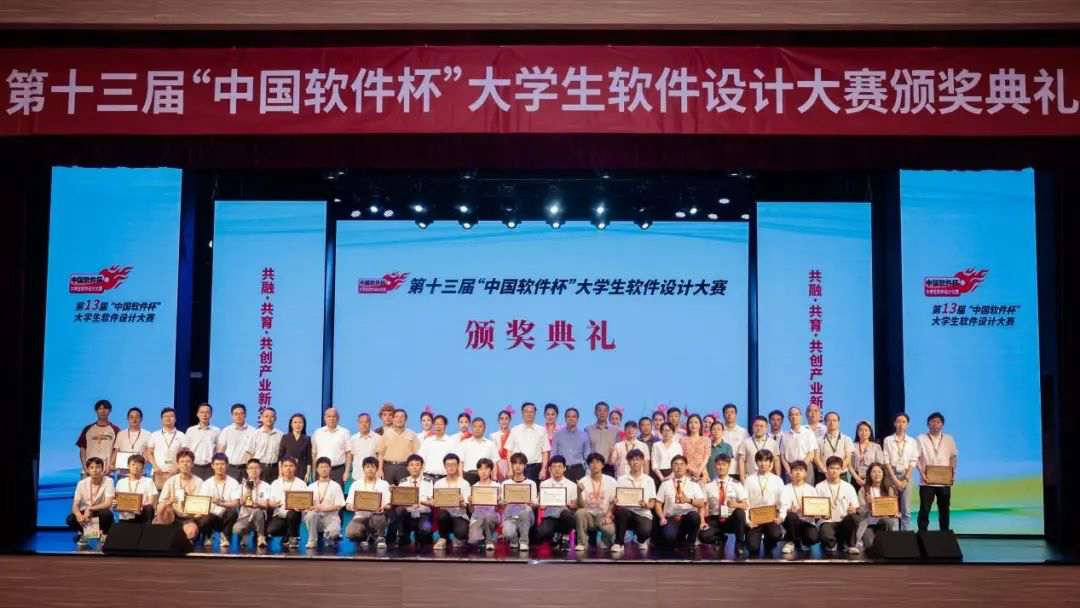
National First Prize
Track: A3 - Intelligent Recommendation System for Database Parameters Based on Artificial Intelligence
Advisor: Liu Yu (School of Computer Science& Technology)
Team Members: Cui Heng (School ofSoftwareEngineering), Han Chaoyang (School of Computer Science & Technology), Liu Ketong (School of Computer Science & Technology)
Project Introduction:
The team’s project, “Shaoyu Knowledge Base,” utilizes deep learning, Bayesian optimization, and other iterative search algorithms to achieve intelligent parameter tuning. It addresses challenges such as the large search space and high costs of automated tuning. Leveraging RAG-based large language models and multi-agent collaboration technologies, their AI assistant significantly enhances user efficiency and experience, providing robust intelligent support for the knowledge base.
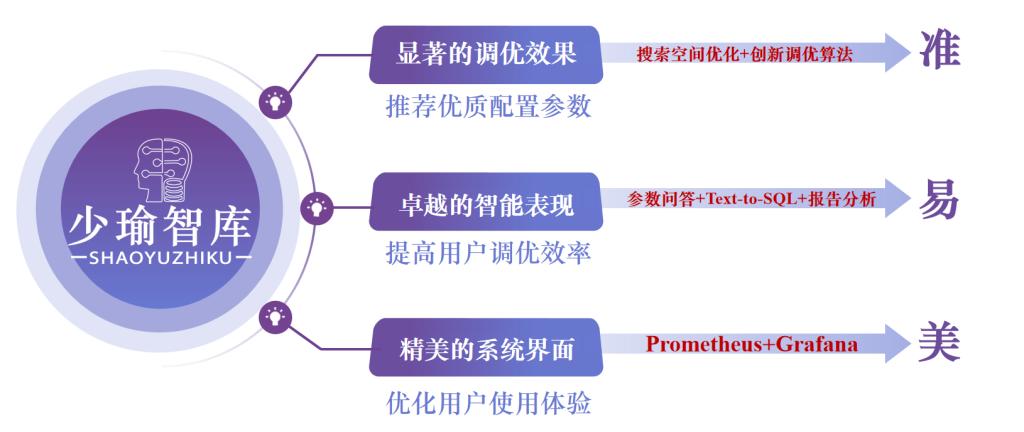
National Third Prizes
Track: A5 - Development of Smart Education Applications Based on the iFLYTEK AI Platform
Advisor: Li Guohui (School of Software Engineering)
Team Members: Gao Jie (School of Software Engineering), Huang Chao (School of Software Engineering)
Project Introduction:
The team’s project, “Smart Education Assessment System,” includes features such as customizable AI-assisted assessment creation, real-time online evaluations, AI-driven analysis of results, teacher management and review, a simplified MOOC platform, and an AI teaching assistant. It aims to improve education quality and efficiency through cutting-edge AI technologies, providing automatic assessments, instant feedback, and an interactive, personalized learning environment for teachers and students alike.
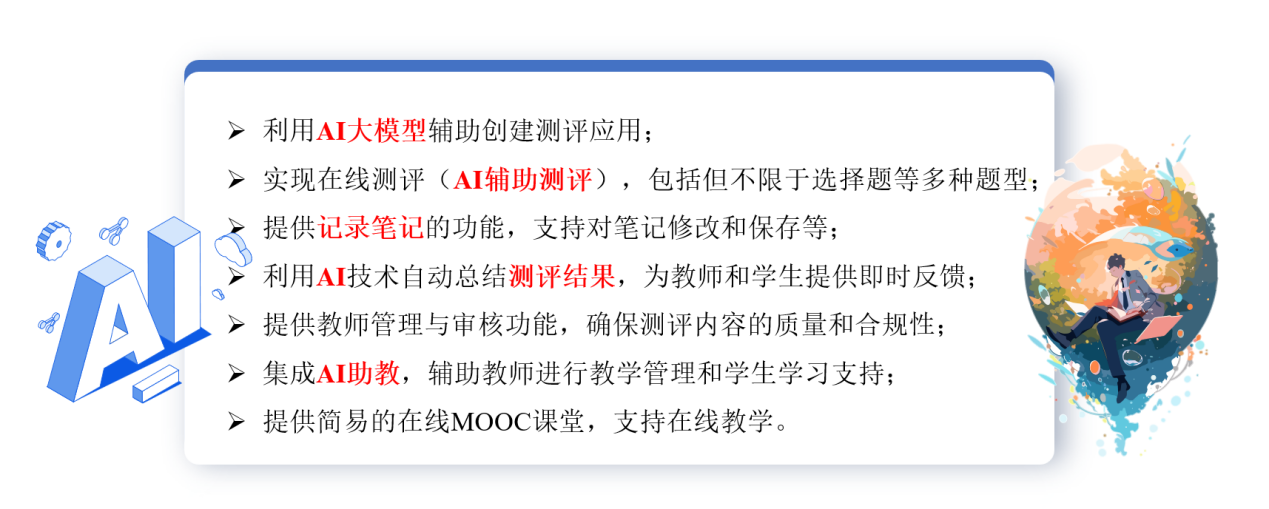
Track: A8 - Application Integration Software Based on Domestic Operating Systems
Advisor: Su Shuguang (School of Software Engineering)
Team Members: Chen Deting (School of Software Engineering), Li Changkun (School of Software Engineering), Tan Lingling (School of Software Engineering)
Project Introduction:
The team developed application integration software based on domestic operating systems, enabling cross-operating-system application virtualization. Users can quickly access Windows applications from Linux platforms. Compared to traditional remote desktop services (RDS), their solution decouples applications from the operating system, offering lightweight deployment. Users only need to install the client to access the required software without worrying about system environment compatibility. The server module includes application publishing, connection management, and host information management functions.
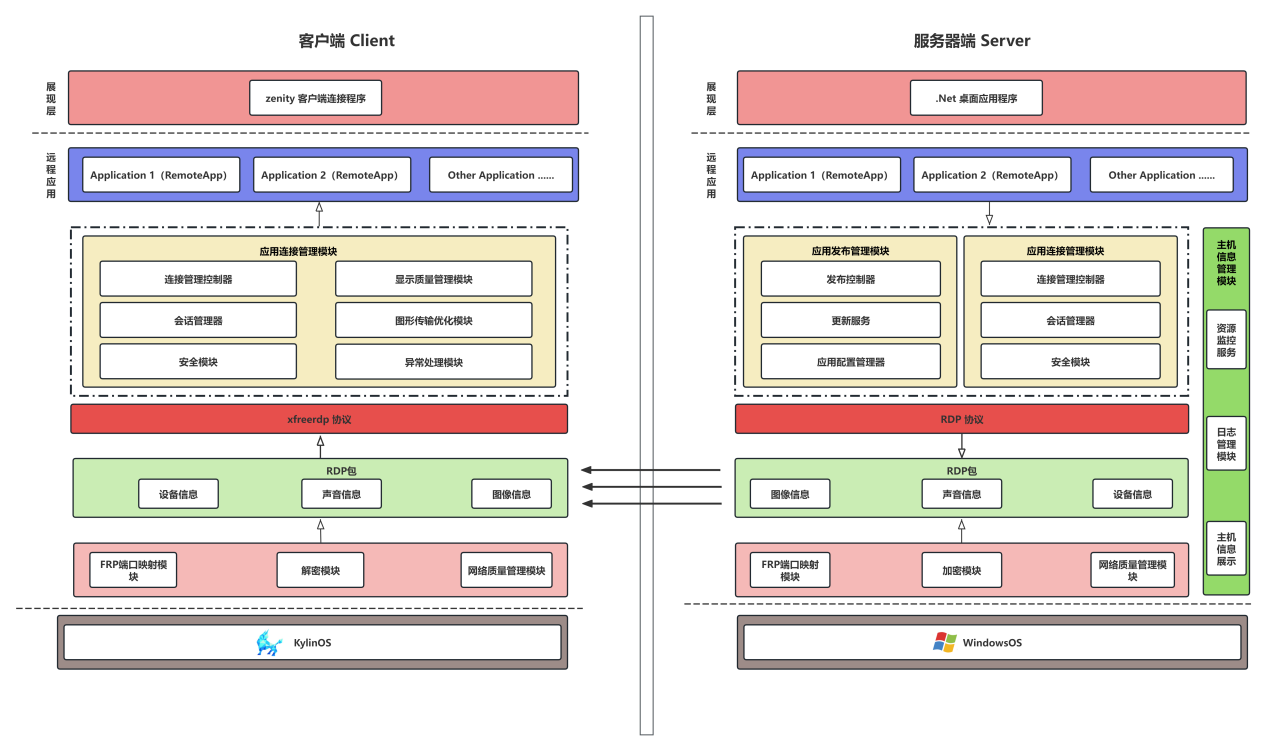
Track: A10 - Design and Development of an Online Editor Based on Large and Small Model Collaboration
Advisor: Wu Tao (School of Software Engineering)
Team Members: Zhang Chang (School of Software Engineering), Yang Xuan (School of Software Engineering), Jin Fangzhuo (School of Software Engineering)
Project Introduction:
The team’s software, “Text Intelligence Master,” is a multifunctional text editor designed to enhance user editing experiences. In addition to basic text editing, it integrates features powered by Baidu’s large and small AI models, including AI question-and-answer, multimodal recognition, auto-formatting, and intelligent content generation. The software caters to diverse user needs, representing the next generation of AI-powered text editors.
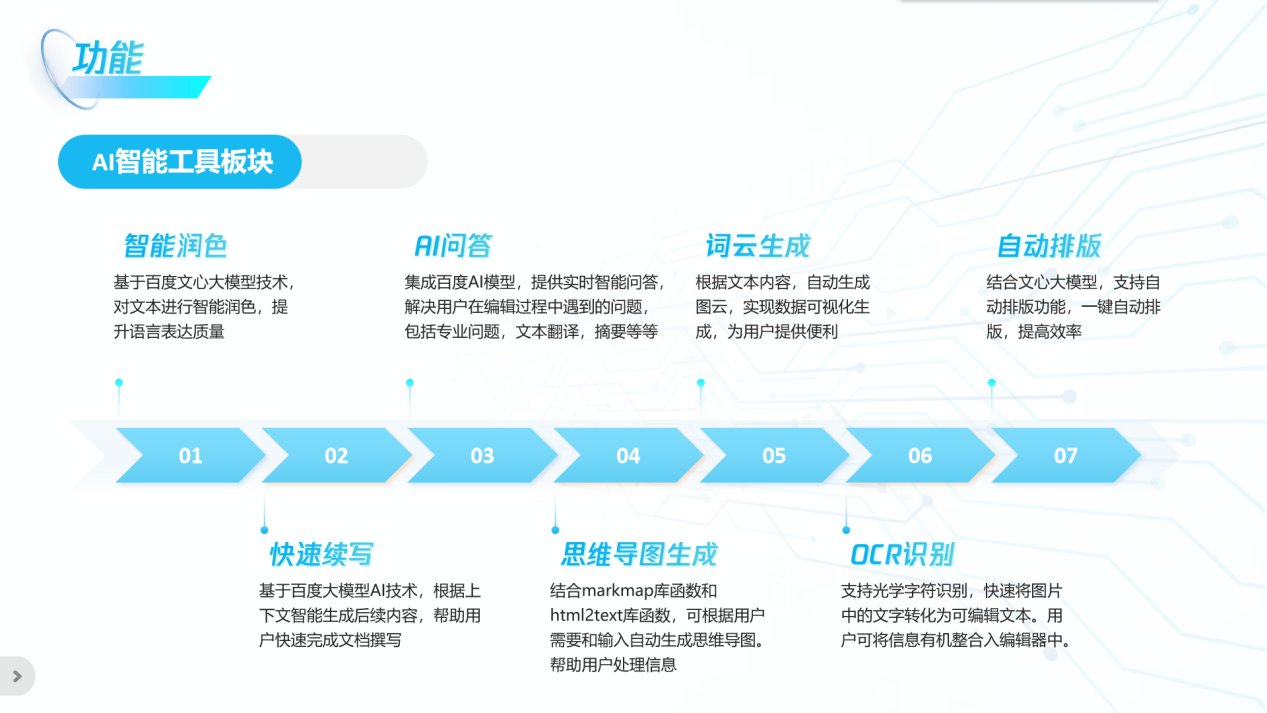
Track: A10 - Design and Development of an Online Editor Based on Large and Small Model Collaboration
Advisor: Tang He (School of Software Engineering)
Team Members: Lin Binbin (School of Software Engineering), Li Zijing (School of Software Engineering), Dong Ruixin (School of Software Engineering)
Project Introduction:
The team’s project, “Infinite Smart Editor,” combines large language models with smaller models (OCR, ASR, image summarization, etc.) using collaboration pipelines, RAG, and prompt engineering. It offers features such as intelligent text enhancement, multimedia information extraction, smart formatting, RAG-based QA, and intelligent data visualization, making it an innovative tool for research-oriented document editing.
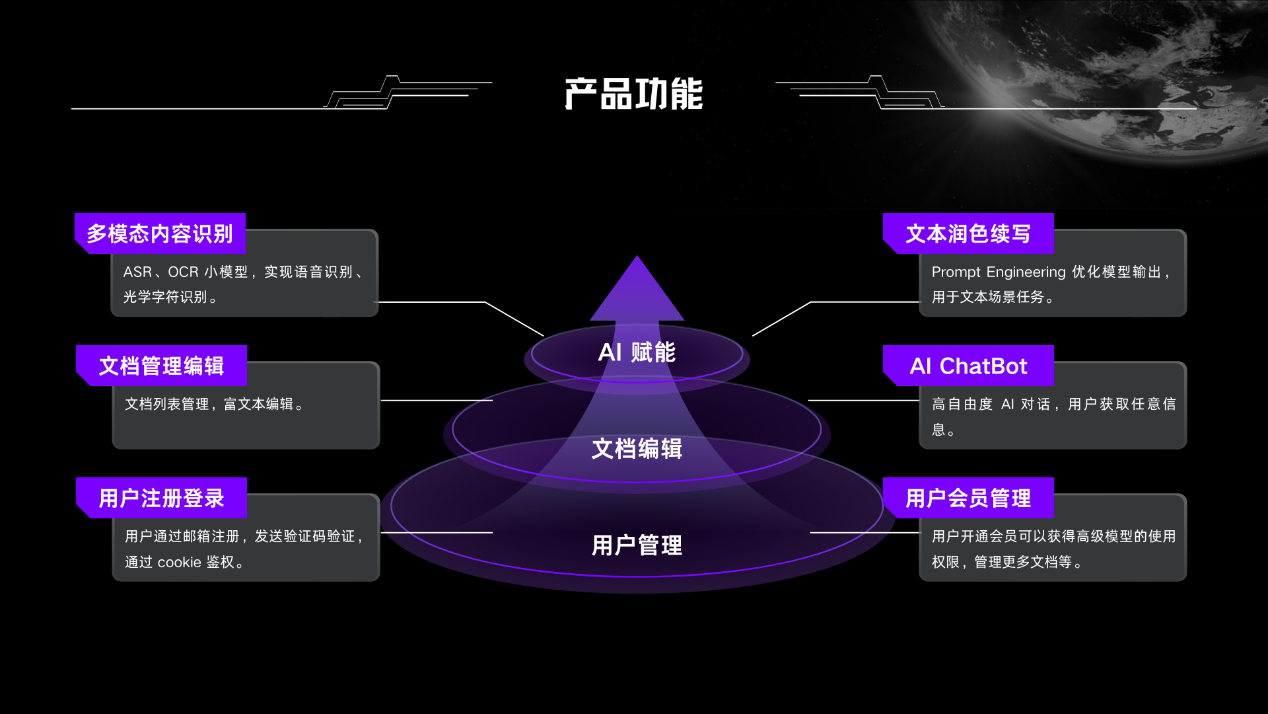
The “China Software Cup” is co-hosted by the Ministry of Industry and Information Technology, the Ministry of Education, and the Jiangsu Provincial People’s Government, with support from organizations such as the China Center for Information Industry Development,theJiangsu Provincial Department of Industry and Information Technology, the Jiangsu Provincial Department of Education, the Ministry of Education’s Advisory Committee on Computer Science Education for Higher Education Institutions, and the Emerging Engineering Education Industry-Academia-Research Alliance in Information Technology.Since 2019, the competition has been included in the “National College Student Competition Analysis Report” published by the China Association of Higher Education. In 2024, it was added to the “College Student Computing Competition Index” and rated as a five-star competition (the highest level). Over its history, the competition has facilitated the resolution of more than 400 key software technology challenges, offering nearly 40,000 students opportunities for advanced study, internships, and employment, and establishing itself as a benchmark event in the software industry.
SSE is committed to addressing national strategic needs, industrial trends, and technological frontiers. The school aims to cultivate highly skilled, innovative, and multidisciplinary software talent with strong foundational knowledge, engineering practice capabilities, and a global perspective. SSE continuously encourages and supports students to participate in professional competitions, enhancing their practical skills, innovation capacity, and teamwork spirit while ensuring effective event organization.

